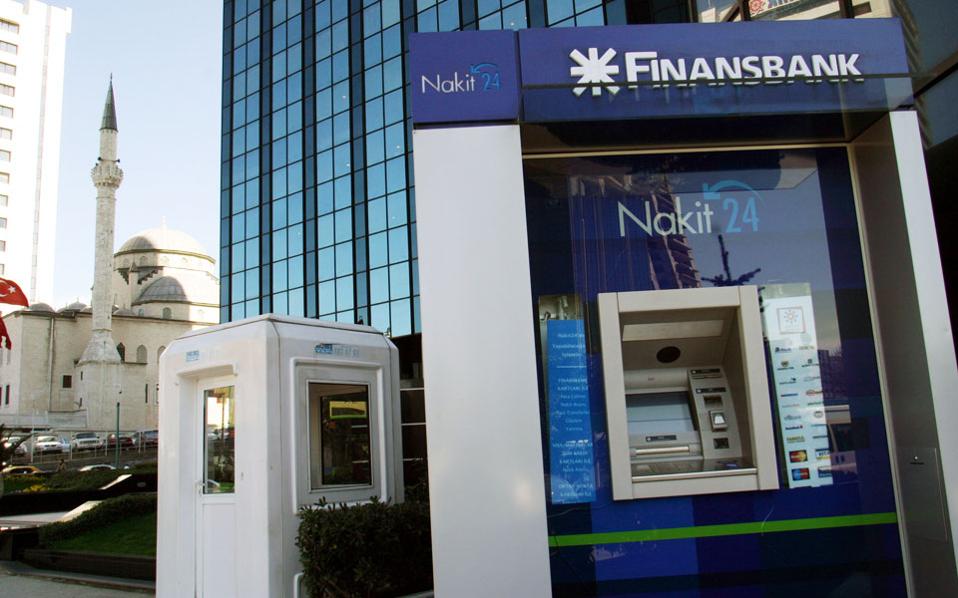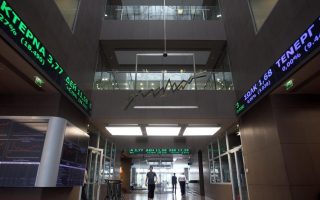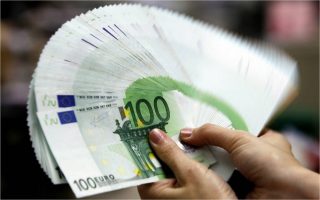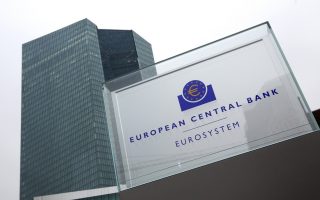One Greek-owned bank doing just fine as crisis fans Turkish sale

The deeper the crisis in the Greek banking industry, the better it gets for Turkey’s Finansbank AS.
The lender that’s almost entirely owned by National Bank of Greece is benefiting from growing speculation its parent will have to sell more of its stake as Greek lenders run out of cash. Finansbank’s shares gained the most since 2011 on Friday as some investors anticipated strengthening interest in the sale and the possibility that new ownership will bolster its capital and ignite growth. The bank’s bonds have risen every day since Greece defaulted on a payment to the IMF.
After Greece’s “no” vote on terms of the European Union- led bailout, and a week of capital controls, banks are running short of notes in cash machines as pensions are rationed. While NBG, which is Greece’s largest bank, is required to sell 40 percent of Finansbank, its full market value of $3.7 billion is equivalent to about seven times the money estimated to remain in Greek banks last week.
“Finansbank is a well-run bank with solid fundamentals,” Velihan Erdogdu, a money manager at Fischer Francis Trees & Watts, a unit of BNP Paribas Investment Partners, said Monday by e-mail from London. “It’s the crown jewel for NBG.”
Even though NBG’s assets make it about four times the size of its Turkish unit, a presentation given to investors shows Finansbank delivered 318 million euros ($352 million) in profit last year for Greece’s largest lender, compared with the 283 million-euro loss NBG made on home turf.
Cash dwindling
With Greece locked in a dispute with its creditors, the country had about 500 million euros in cash reserves left in its banking system, Constantine Michalos, president of the Athens Chamber of Commerce, estimated last week.
“The Turkish banking system is quite well regulated, so Finansbank is ring-fenced from the potential liquidity problems of its parent,” said Olga Budovnits, a credit analyst at Union Bancaire Privee in Zurich. Neither has NBG turned to Finansbank as a source of cash, with the unit not paying a dividend to its parent in three years, she said.
Finansbank has no exposure to Greek debt securities, according to two officials at the bank who weren’t authorized to speak publicly. Even so, Greek ownership is “a distracting factor both locally and for institutional investors,” Budovnits said.
Reluctant seller
NBG announced last year that it would sell shares in Finansbank to reduce its holding in the Athens-based lender’s most profitable asset. It’s also been exploring the possibility of a stake sale, according to two people familiar with the process who asked not to be identified because the information is confidential.
The bank’s former deputy chief executive, Paula Hadjisotiriou, said last year that NBG was “reluctant” to make any reduction in Finansbank. “We have to carry it out, we don’t have to like it,” she said in November. Earlier this year Hadjisotiriou left the bank, along with its chair and chief executive officer.
NBG needs to shrink its holding in Finansbank by the end of the year to comply with the terms of a bailout it received from European regulators. The Greek lender didn’t return calls and e- mails requesting comment on Monday. Finansbank didn’t immediately return an e-mailed request for comment.
Since the share-sale plan was announced, Finansbank has moved its headquarters, NBG has changed its management, and there have been three elections and a referendum in the two countries. Amid such volatile market conditions, NBG hasn’t been successful in offering the Finansbank shares, missing at least three of the deadlines it announced to the market.
Higher ratings
Only 0.2 percent of Finansbank shares are publicly traded, meaning the stock can move significantly on small volumes. So far this year, it’s up 17 percent, compared with an 11 percent decline on the Turkish banking index and an 18 percent slump for NBG in Athens.
The yield on Finansbank’s $500 million in debt maturing in April 2019 was 5.92 percent on Tuesday, 150 basis points higher than on similarly dated paper at Turkiye Garanti Bankasi AS, Turkey’s largest lender by market value.
If Finansbank were to sell a strategic stake to raise cash, a deal would materialize quickly, according to UBP’s Budovnits.
“Finansbank may get a strategic shareholder, which is financially much stronger than NBG and could help the bank to grow its market share and capital by providing some capital support,” she said. “Ratings could ultimately be also pushed higher if a new investor demonstrates support to the bank and its franchise becomes bigger nationwide.”
Interest in the Turkish unit of HSBC Holdings Plc, which analysts say is close to selling its unprofitable business in the country, is fueling bets that a sale would also draw bidders.
“The market believes there will be a bidding war,” said Isik Okte, a strategist at TEB Invest in Istanbul. “Suitors for Finansbank are lining up.”
[Bloomberg]





